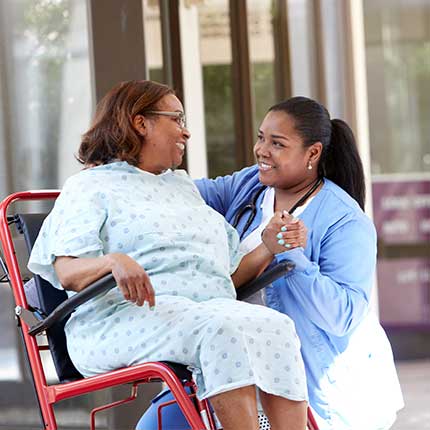Healthy Living
Spiders, Snakes and Bugs That Bite
Nature’s creatures can be more active in the summer. And certainly most encounters with snakes, spiders and bugs that bite don’t require a trip to the emergency room. But some can be quite serious. So, be prepared with info about how to handle different types of bites. Then, go on and enjoy the great outdoors.
1. Spider Bites
Here’s the good news – the majority of spiders in the U.S. are not dangerous to people. Here’s the bad news – you may get a spider bite and not know it for several hours when you notice one or more of these symptoms:
- Redness and/or swelling
- Damage to the skin
- Pain around the bite
- Itching or rash
- Red or purple blister
- Fever and/or chills
- Nausea and vomiting
- Headache
- High blood pressure
Seek immediate medical attention for any of the following:
- Difficulty breathing
- Extreme pain in the bite area or abdomen
How to Avoid a Spider Bite
- Wear gloves when moving things like firewood or items where spiders can hide, such as under patio furniture.
- Be aware of the presence of spiders when you see webs, such as in an attic.
- Store things like garden gloves in sealed plastic bags.
- Use insect repellant.
How to Handle Spider Bites
Seek immediate medical attention if you think you have been bitten by:
- Black widow
- Brown recluse
- Hobo spider
- Tarantula
- Brazilian wandering spider
Otherwise, take these steps, and seek medical attention if symptoms persist for more than 24 hours:
- Clean the bite area to prevent infection and apply antibiotic ointment.
- Elevate the bite area to reduce swelling.
- Take an antihistamine.
- Apply an ice pack off for 10 minutes at a time, on and off.
2. Snakebites
Snakes are creatures that many people associate with hiking and camping. But some snakes can also be found closer to home. While many snakes are innocent, venomous snakes include copperheads, coral snakes, cottonmouths/water moccasins and rattlesnakes. Be sure to familiarize yourself with the types of snakes living in the area where you live or want to visit.
How to Avoid Snakebites
You may not see a snake before it strikes. Some, like copperheads, frequently hide under leaves and are difficult to see due to camouflage. Here are a four ways to increase your chances of avoiding a bite:
- If you see a snake, move at least six feet away and do not touch or harass the snake.
- Stay on marked trails, watching where you step and where you put your hands if you are climbing.
- Beware of places where snakes may hide, such as under rocks or logs, in tall grass or piles of leaves.
- Wear boots for protection, especially at night.
How to Handle a Snakebite
With or without symptoms, call 911 as soon as the bite occurs. While waiting for medical care:
- Keep the victim still, warm, calm and at rest to prevent the venom from spreading through the body.
- Cover the bite with a clean, dry cloth.
- Keep the injured body part motionless and lower than heart level.
- Do not let the victim to eat or drink anything.
- Do not attempt to capture the snake. If possible, take a photo of the snake to help emergency personnel identify the type of snake.
3. Bug or insect-related Injuries
Bug and insect-related injuries such as wasp bites, tick bites, mosquito bites and bee stings increase with warmer weather. While most of these injuries are often irritating, they can also be deadly at worst.
Mosquitoes and ticks can transmit serious viruses and diseases. Wasps and bees, on the other hand, can trigger severe allergies and health conditions.
How to Avoid Bug or Insect Bites
- Use insect repellant on skin and clothing. 20-30% DEET is most effective.
- Cover skin with clothing, such as long pants and long-sleeved shirts.
- Tuck pants into socks.
- Wear closed-toe shoes.
- Pay attention to seasonal notices, such as for Lyme disease, West Nile virus or Zika.
How to Handle Bug-related Injuries
Bug injuries usually heal with topical creams and cold compress. However, if, after a bug bite or sting, you experience breathing difficulties, swelling, numbness and other alarming symptoms, call 911 immediately.
Safe Emergency Care
If you or someone you know experience any of these emergencies, do not hesitate to seek help. Call 911 immediately. Our hospital is safe and ready for you 24/7. Your safe care is our #1 priority.
Sources:
Healthline
American Academy of Dermatology
U.S. Forest Service



